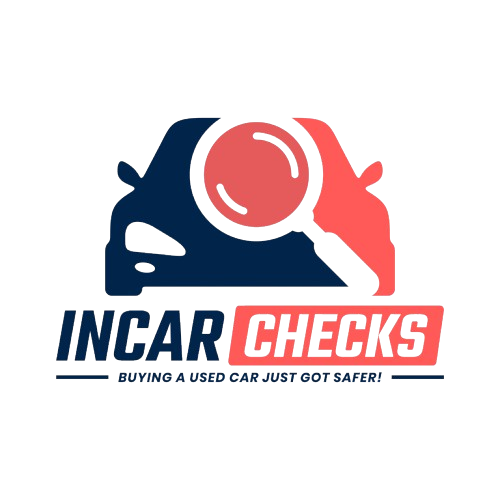In today’s used car market, scams are more common than ever. Whether you’re buying or selling a vehicle, being misled about the car’s history can lead to serious financial and legal consequences. Fortunately, there’s a proven way to protect yourself: the InCar Checks report.
An InCar Checks report is a comprehensive vehicle history check that helps individuals make informed decisions based on real data. It’s a simple yet powerful tool that uncovers the truth about a car’s past and provides peace of mind for both buyers and sellers.
In this article, we’ll explore how the InCar Checks report acts as a shield against scams and why it should be a non-negotiable part of every used car transaction.
The Reality of Scams in the Used Car Market
Buying or selling a used vehicle should be a straightforward process. Unfortunately, the market is filled with risks. From clocked mileage and outstanding finance to insurance write-offs and cloned vehicles, fraudulent listings are everywhere.
Here are some of the most common scams that affect buyers and sellers:
- Clocked mileage – Odometer tampering to make a car appear less used.
- Outstanding finance – The car still belongs to the finance company, not the seller.
- Written-off vehicles – Cars that were in serious accidents but repaired and sold without disclosure.
- Cloned cars – Vehicles using the identity of another car to hide their stolen status.
- Logbook scams – Fraudulent or fake V5C documents to hide ownership issues.
These scams can result in unexpected repair bills, legal action, loss of the vehicle, or even being held accountable for a stolen car. The consequences are severe—and often irreversible.
Why the InCar Checks Report is Your Best Defense
The InCar Checks report is designed to expose hidden problems before you make a purchase or list your vehicle for sale. It provides access to verified data from national and government databases, offering a reliable and transparent view of the vehicle’s background.
Here’s what makes it so effective:
1. Verification of Ownership and Title
Before buying a vehicle, it’s crucial to ensure that the person selling it actually owns it. The report confirms registered keeper history, highlighting how many owners the vehicle has had and whether it is legally transferable.
2. Outstanding Finance Check
One of the biggest risks is purchasing a car with existing finance. If a car is under finance, the finance company legally owns it—even if someone else is selling it. The InCar Checks report alerts you to any active financial agreements so you don’t unknowingly buy a vehicle that isn’t fully paid off.
3. Insurance Write-Off History
Some sellers fail to disclose that a car was previously written off. This usually follows a major accident or structural damage. InCar Checks identifies whether a car has been classified as a Category A, B, C, or D write-off, ensuring you understand the severity of any past damage.
4. Stolen Vehicle Check
No buyer wants to end up with a stolen car. The report cross-checks police databases to see if the vehicle has been reported as stolen. This protects you from unknowingly purchasing stolen property.
5. Mileage Discrepancy Check
InCar Checks verifies the mileage through multiple data points, exposing any suspicious odometer rollbacks. This helps you assess whether the mileage is genuine and aligns with the car’s condition.
6. MOT History and Tax Status
You can view a full MOT history and upcoming due dates, helping you predict future maintenance costs. Additionally, the report shows the current tax status of the vehicle to prevent any legal trouble after purchase.
How InCar Checks Helps Sellers Avoid Scams Too
Scams aren’t just a threat to buyers—sellers are at risk too. From fake payment confirmations to identity theft, selling a car privately comes with its own set of dangers. Here’s how InCar Checks protects sellers:
Increases buyer trust by providing full transparency upfront.
Helps justify your asking price with verified facts and history.
Prevents disputes by clarifying known issues before a deal is made.
Minimizes negotiation pressure, since buyers see the documented value of the car.
Avoids legal consequences for selling a car without disclosure of past issues.
Why Every Transaction Needs an InCar Checks Report
Whether you’re buying from a private seller, a dealership, or an online listing, never assume the information presented is the full story. Trustworthy transactions are based on facts, not assumptions.
Here’s why using the InCar Checks report should be your standard practice:
- It’s quick – You get detailed data in minutes.
- It’s affordable – Far cheaper than the cost of a bad purchase.
- It’s reliable – Based on verified data from trusted sources.
- It adds value – Buyers and sellers both benefit from greater transparency.
When Should You Run the Report?
Timing is important. Here’s when you should get an InCar Checks report:
- Before buying – Always run a check before paying any deposit or signing paperwork.
- Before selling – Offer a recent report with your ad to make your listing stand out.
- Before test driving – If you’re unsure about a car, get the report first to avoid wasting time.
- Before final negotiations – Use the report to leverage fair pricing.
Conclusion:
Scammers count on ignorance and assumption. They rely on buyers skipping the extra step of checking a vehicle’s history. But when you use an InCar Checks report, you’re choosing transparency, security, and confidence.
Protect your money. Protect your peace of mind.
Let the facts speak louder than words—every used car should come with an InCar Checks report.
